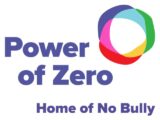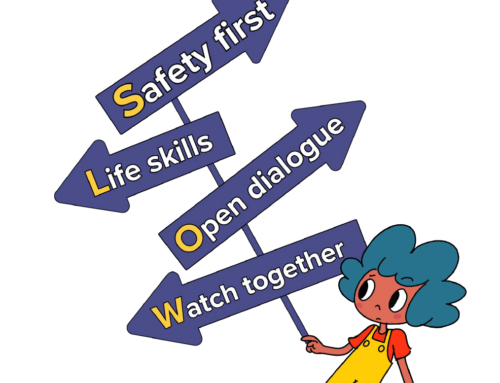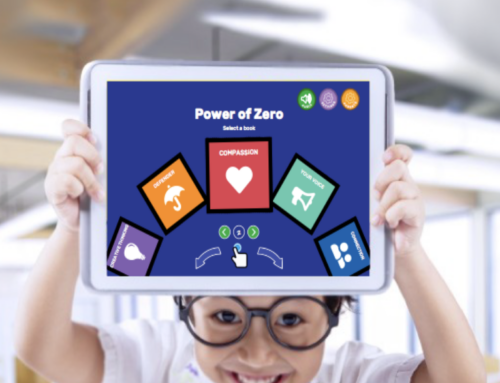By Jacqueline Beauchere, Global Digital Safety Advocate at Microsoft
It’s a new year and a new decade, and teens and adults around the world hope that respect, safety and freedom will define online life in the 2020s, new Microsoft research shows.
For the past four years, we’ve been invested in research as part of a campaign to promote digital civility – safer, healthier and more respectful online interactions among all people. With the advent of the new decade, we wanted to enhance that work and seek insight into people’s “2020s vision.”
We asked respondents to select three words to best describe what they hope will come to define online experiences and digital interactions over the next 10 years. “Respect” was by far the preferred option, chosen by two-thirds (66%) of participants. “Safety” followed at a rather close second (57%), while “freedom” (33%), “civility” (32%) and “kindness” (26%) rounded out the top five. “Empathy” was the only other choice to receive more than 20% of the vote – 21% precisely. Meanwhile, “well-being,” “inclusivity,” “health,” “compassion” and “curiosity” all scored between 11% and 15%.
In addition, we asked survey participants to pull out their crystal balls and predict the tone and tenor of online behaviors in the next decade, particularly with respect to some specific — and sometimes troubling — scenarios. Here are some of their responses:
- Half (50%) say technology and social media companies will create tools and implement policies to encourage more respectful and civil online behavior and punish poor conduct.
- Half (50%) also predict people’s ability to protect their privacy and personal data will improve.
- A third expect fewer women to be sexually harassed online (34%), fewer teens to be bullied (33%) and they expect online political discussions to become more constructive (33%).
The latest study, “Civility, Safety and Interaction Online – 2019,” polled teens aged 13-17 and adults aged 18-74 about their exposure to 21 different online risks across four categories: behavioral, sexual, reputational and personal/intrusive. This research builds on similar studies about digital civility that Microsoft has conducted in each of the last three years. The 2019/2020 installment polled respondents in 25 countries, up from 14, 23 and 22 countries from 2016 to 2018, respectively. A total of 12,520 individuals participated in this study, and we’ve surveyed more than 42,000 people on these topics since the start of this work. Full results of this poll, including the release of the latest Microsoft Digital Civility Index, will be released on international Safer Internet Day on February 11.

Less encouraging picture for 2020
Looking ahead to 2020 as a single year, respondents were less encouraged about making significant progress with respect to civil online behavior. For instance, nearly 4 in 10 feel unwanted online contact (39%), bullying (39%) and unwelcome sexual attention (39%) will worsen this year. A slightly smaller percentage (35%) expect people’s reputations, both professional and personal, will continue to be attacked online. One-quarter (25%) of respondents see improvement across each of these risk areas in 2020.
Still, those percentages show significant improvement from respondents’ assessments of the current state of digital civility. Among the countries surveyed, more than half of the respondents rated the current situation as “poor” in terms of people being contacted online without their permission or consent (60%), individuals being bullied, harassed or abused (51%), and people being solicited with unwanted relationship requests or sexual advances (51%). A lesser percentage (46%) see people’s reputations being sullied online.
Microsoft’s Digital Civility Index and Challenge
So, what can we do to improve global digital civility as we kick off the 2020s? As the new year and new decade begin, it seems an appropriate time to consider a new year’s and perhaps even a new decade’s resolution. As we have throughout the span of this research, we’re once again calling on youth, teens and adults across the globe to sign onto our Digital Civility Challenge and pledge to live by four basic tenets for life online to encourage kinder, more empathetic and more respectful interactions. Specifically:
- Live the “Golden Rule” and treat others with respect and dignity both online and off
- Respect differences of culture, geography and opinion, and when disagreements surface, engage thoughtfully
- Pause before replying to comments or posts you disagree with and ensure responses are considerate and free of name-calling and abuse
- Stand up for yourself and others if it’s safe and prudent to do so
These may sound like practical, common-sense pieces of advice — and they are. Too often in recent years, however, they appear to have fallen out of favor, as shock value and social comparisons fuel the chase for “likes” and “followers.” For evidence of this, look no further than the sentiments and work of members of our own teen Council for Digital Good. These young people and several others like them have committed to turning this tide. In 2020 and beyond, let’s hope many more follow.
Next month, when we make the complete research findings available, we will also announce the latest reading of the Microsoft Digital Civility Index, a global and country-by-country measure of civility as reported by citizen-respondents. The index measures the perceived level of online civility in a specific country based on the reported level of risk exposure of individuals in that country. The index works like a golf score: A lower reading equates to a higher level of perceived civility. In the prior three years, the index held relatively steady, averaging 66% — an indication of both risk exposure and digital civility — despite changes each year to both the number of countries and the various risks included.
This article was first published in Microsoft on the Issues on January 2, 2020







Leave A Comment